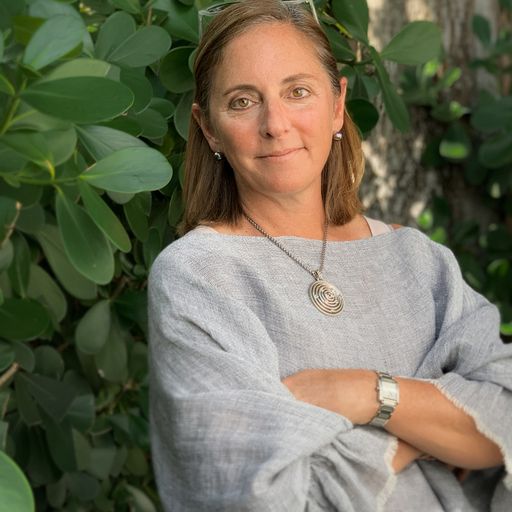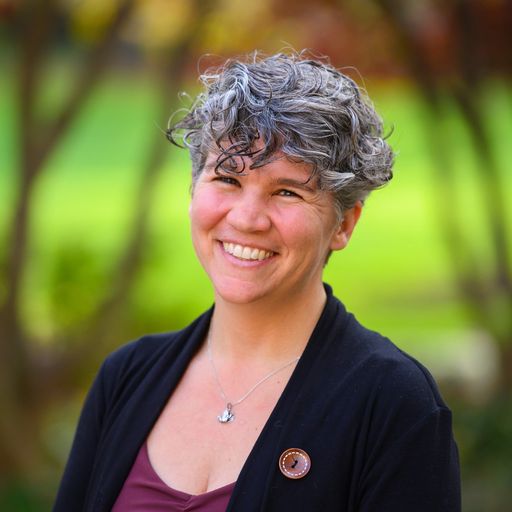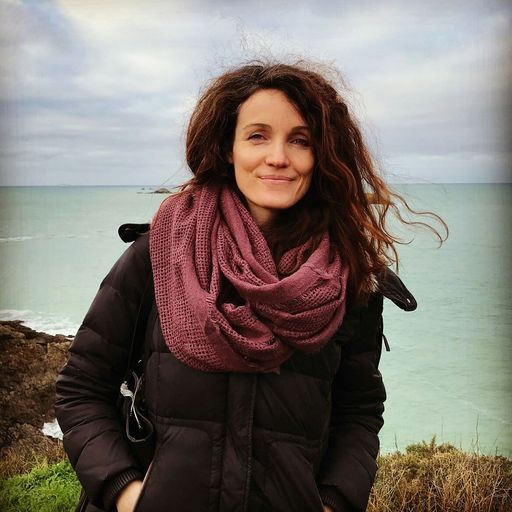Citizens' Climate Radio Episode 76: Building Personal Resilience in Your Climate Work
Citizens’ Climate Radio is a monthly podcast hosted by CCLer Peterson Toscano. Browse all our past episode recaps here, or listen to past episodes here, and check out the latest episode in the post below and listen here!
You can find a transcript for this episode here.
On this month’s episode of Citizens’ Climate Radio, Laureline Simon joins host Peterson Toscano to discuss the importance of establishing personal resiliency, both in the mind and the body, for climate workers around the world. Laureline has studied international relations and development at Sciences Po, as well as Indian languages at the Institut National des Langues et Civilisations Orientales (INALCO) in Paris, France.
Laureline Simon is the founder and executive director of One Resilient Earth, an international non-profit organization that designs transdisciplinary educational projects for communities impacted by climate change, youth and sustainability professionals, to respond to the climate and biodiversity crises through resilience, regeneration and transformation. One Resilient Earth is an organization determined to make sure communities are equipped enough to respond to any form of climate instability around the world.
Laureline has been working on climate change education, mitigation, and adaptation at the international level for over 15 years. Long before One Resilient Earth, she started her climate career with the nonprofit organization Society Empowering Women to Achieve (SEWA), supporting women-led disaster reconstruction projects in rural Indian communities. Laureline then got involved with financing large-scale biodiversity conservation projects in South Asia with the French Development Agency. After spending time working on climate change mitigation projects in South Asia, she then led a long-term research project examining climate adaptability of sub-Saharan African cities over the course of multiple years. While working with the UN Climate Change Secretariat, she also helped to set up the Local Communities and Indigenous Peoples’ platform, coordinated an intelligence processing collective on long-term resilience called Resilience Frontiers and supported task forces created on population displacements related to climate change.
Now, Laureline’s focus has shifted to strengthening individuals’ mental and emotional well-being in a climate-altered world. Laureline understands climate change has and will continue to have significant impacts on physical, emotional, and psychological health, especially for those deeply involved in climate work and advocacy.
To help meet the emotional needs of fellow climate workers, Laureline now hosts a weekly online gathering called The Climate Workers Circle. This hour-long meeting takes place every Tuesday at 2 p.m. ET.
The Art House

In this month’s edition of The Art House, American photographer and poet Susan Currie tells us about a new book she wrote for fellow artists, especially when we feel stuck. In Super Flow, she provides insights, practices, and practical advice on how to maintain a fresh, creative, sustainable artistic flow.
Susan Currie is a West Palm Beach-based poet with a camera. Her words and images have been widely exhibited and published. She met her muse some time ago when she discovered the ancient eight-limbed practice of yoga. Its way of life continues to inform and imprint the art she makes. Her new works of visual art are on exhibit in a number of private collections and at Chase Edwards Contemporary in Bridgehampton, NY.
Resilience Corner

Tamara Staton premieres in the first segment of a new series designed to help us stay strong and focused in our climate work. Tamara is the Education and Resilience Coordinator for Citizens’ Climate Education, and in this first installment of the Resilience Corner, she outlines for us the Five Steps to Resilience Building:
- Notice what you’re needing, feeling, or experiencing right now.
- Accept that what you need is what you need. Allow yourself to be free from judgment about what that means about you or your upbringing or your surroundings.
- Seek help with those needs that you struggle to meet yourself.
- Practice meeting your needs. It will naturally look different for everyone. And, It may take some trial and error to see what will meet your needs and how.
- Repeat these five steps regularly.
Next month, we’ll take a closer look at noticing and accepting what we’re needing, feeling, and experiencing at any particular moment. Get more tips and resources by visiting The Resilience Hub on CCL Community.
A constantly changing environment means we’ll constantly need to adapt for the sake of our mental health and resilience. If you are interested in a regular on-going discussion about local, regional, and national adaptations, and the ways we use infrastructure, policy, and government to prepare for the impacts of climate change, listen to Doug Parson’s America Adapts. In this podcast series, Doug interviews scientists, activists, policymakers, and journalists to discuss how society is going to adapt to all the climate impacts now and in the future drought, sea level rise, extreme events, the climate is going to change, and we need to be prepared for it.
Good News Report
Flannery Winchester, communications director at Citizens’ Climate Lobby, explains that while the Inflation Reduction Act will not solve all of our climate change problems, it is a significant step with benefits for all American citizens on the right, left, and center.
If you have good news to share, email radio @ citizensclimate.org. We always welcome your thoughts, questions, suggestions, and recommendations for the show. Leave a message on our listener voicemail line: (619) 512-9646. +1 if calling from outside the U.S.
Listener Survey
We want to hear your feedback about this episode. After you listen, feel free to fill in this short survey. Your feedback will help us as we make new decisions about the content, guests, and style of the show. You can fill it out anonymously and answer whichever questions you like.
You can hear Citizens’ Climate Radio on: iTunes, Spotify, SoundCloud, Podbean, Stitcher Radio, Northern Spirit Radio, PlayerFM, TuneIn Radio
Also, feel free to connect with other listeners, suggest program ideas, and respond to programs in the Citizens’ Climate Radio Facebook group or on Twitter at @CitizensCRadio.
Recent Posts

